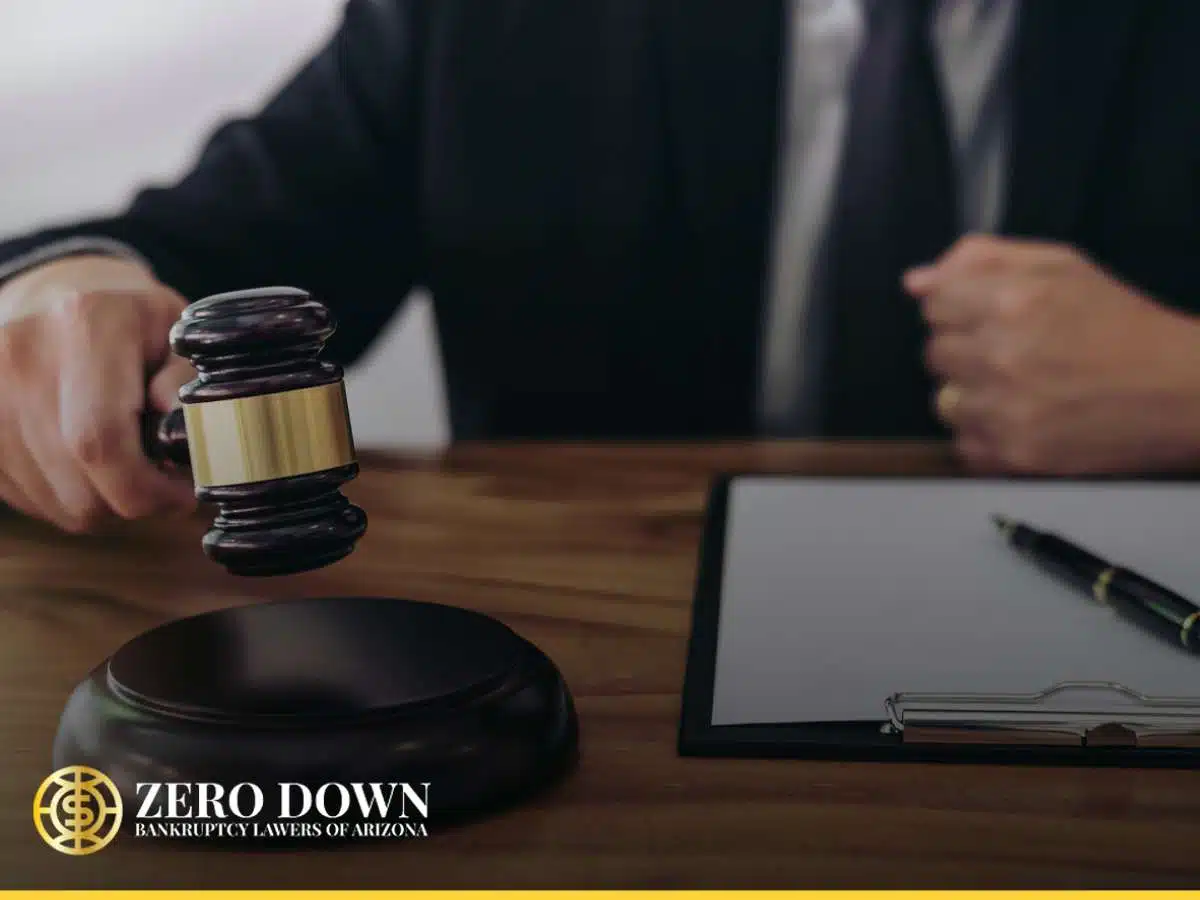Now more than ever, it is crucial to be financially responsible. Inflation has increased the cost of living beyond many families’ means, eliminating discretionary spending and even name-brand purchases. But not all expenses are optional or have a less expensive option that the purchaser can afford with cash on hand. When someone needs a lump sum of cash and quickly, there are limited choices available. If that person has retirement savings, they might consider withdrawing from their 401(k) or taking a loan on their 401(k) account. There are several benefits and drawbacks to using a 401(k) loan versus other lines of credit like personal loans and payday loans. But there are also special considerations to keep in mind if you are also considering filing for bankruptcy. If you would like more information about these from a skilled Phoenix bankruptcy lawyer, call (602) 609-7000 for your free consultation with our firm.
What Is a 401(k) Loan?
A 401(k) loan is essentially a withdrawal from your 401(k) retirement savings with a promise to pay it back. 401(k) providers aren’t required to offer 401(k) loans but most of them offer the option anyway. When a borrower takes out a 401(k) loan, they can receive up to $50,000 or 50% of their account balance, whichever is less. If the borrower can repay the loan within the set time period, they won’t incur a penalty for withdrawing before turning 59 ½ years old. The loan should be repaid within 12 months, but most 401(k) loans have a deadline to be repaid of 5 years. If the borrower used the funds from the 401(k) loan to purchase a house, the repayment period may be longer.
A 401(k) loan borrower can have their loan payments automatically deducted from their paychecks like their 401(k) contributions. This helps keep payments timely and replenish the funds withdrawn due to the loan. However, the borrower can run into trouble if they lose their job. Quitting or getting fired will result in the borrower’s due date being accelerated. If the borrower is unable to comply with the new early due date, they could be subject to the 10% early withdrawal tax penalty. Another argument against 401(k) loans is that the borrower can miss out on investment gains while the funds are out of their account on a loan. But it can still be preferable to other options if the borrower has an urgent need for a lump sum of cash.
Can I Discharge 401(k) Loans In Bankruptcy?
Bankruptcy can clear many types of debts, like personal loans, payday loans, credit cards, and more. Unfortunately, bankruptcy can’t be used to discharge 401(k) loans. The debtor is their own creditor here, and clearing the debt wouldn’t make those funds reappear in their 401(k) account. Some loans aren’t wiped away in a bankruptcy filing, like title loans and student loans. 401(k) loans are among the loans that can’t be discharged in chapter 7 bankruptcy. Chapter 13 bankruptcy can be used to pay off debts, and some debts are discharged at the end of the plan. 401(k) loans are not among the debts that will be cleared at the end of a chapter 13 payment plan. If you have any further questions about the dischargeability of 401(k) loans or any other type of loan in bankruptcy, call (602) 609-7000 for your free consultation with our Phoenix bankruptcy firm.
Paying Off Debts With Loans
Bankruptcy is considered by many to be an absolute last option when dealing with financial issues. However, if you have 401(k) savings, taking out a 401(k) loan may be more of a last option than filing for bankruptcy. Bankruptcy can stop several types of collection efforts that a person may be considering taking out a 401(k) loan to stop. They include:
- Vehicle repossession (or repossession of any other secured asset)
- Home foreclosure
- Lawsuit
- Wage garnishment
- Bank account levy
- Eviction (only if the landlord hasn’t yet obtained a writ of possession)
- Utility shutoff
- Creditor harassment
It’s understandable that someone may panic when notified of any of the above and want to pay off the debt as soon as possible. Taking out debt to pay off debt can be a tricky situation, but makes more sense when it is a serious matter like saving a home or stopping a lawsuit. However, if the borrower isn’t going to be able to repay the 401(k) loan, it is just pushing the financial problem later down the road to retirement. The borrower could have other debts that will remain after taking out the loan. Keeping up with them will be even harder with extra money deducted from their paycheck to pay back a 401(k) loan. Here, it may be more useful to file for bankruptcy rather than risk retirement savings to pay off a debt that could be discharged.
Filing for bankruptcy triggers the automatic stay. When a debtor is protected by the automatic stay, a creditor can’t proceed without any of the debt collection actions described above without special permission from the court, known as a motion for relief from the automatic stay. The automatic stay generally lasts from petition filing to case discharge. This typically takes 3 to 6 months for a chapter 7 case and 3 or 5 years for a chapter 13 case. If you would like more assistance deciding between taking out a 401(k) loan or declaring bankruptcy, contact our Phoenix bankruptcy firm for your free consultation at (602) 609-7000.
Credit History & 401(k) Loans Or Bankruptcy
One of the positive aspects of 401(k) loans is that they don’t have major implications for the borrower’s credit. The borrower doesn’t need to pass a credit check to qualify for the loan, and their credit score will not be negatively impacted by a credit inquiry. Bankruptcy, on the other hand, can have a significant impact on a debtor’s credit history. However, that isn’t always necessarily a bad thing.
The immediate impact of filing for bankruptcy on a debtor’s credit score depends on the state of their credit when they file. If they have relatively good credit, they can expect their score to drop. If they have past-due accounts that will be cleared upon filing for bankruptcy, they could see little change in their score or even a small boost. Bankruptcy also has long-term credit implications. Chapter 7 bankruptcy stays on the debtor’s credit history for 10 years, and chapter 13 will remain on the debtor’s credit history for 7 years. If you have more questions about how filing for bankruptcy can affect your credit, contact our Phoenix law firm for your free consultation at (602) 609-7000.
Schedule Your Free Consultation With An Experienced Phoenix Bankruptcy Lawyer
If you are considering a 401(k) loan as a form of debt relief, you may have other options available. Our skilled Phoenix bankruptcy team offers free consultations so you can learn more about the process without it coming out of your own pocket. If you do decide to retain, we have competitive payment plans that start as low as Zero Dollars Down for eligible clients. To learn more about our firm and our processes, call (602) 609-7000 to schedule your free consultation with our Arizona Zero Down Bankruptcy and contact us today.
Arizona Offices
Phoenix Location:
343 W Roosevelt Street, Suite #100
Phoenix, AZ 85003
Email: [email protected]
Phone: 602-609-7000
Mesa Location:
1731 West Baseline Rd., Suite 101
Mesa, AZ 85202
Email: [email protected]
Glendale Location:
20325 N 51st Avenue, Suite #134
Glendale, AZ 85308
Email: [email protected]
Tucson Location:
2 East Congress, Suite #900
Tucson, AZ 85701
Email: [email protected]










